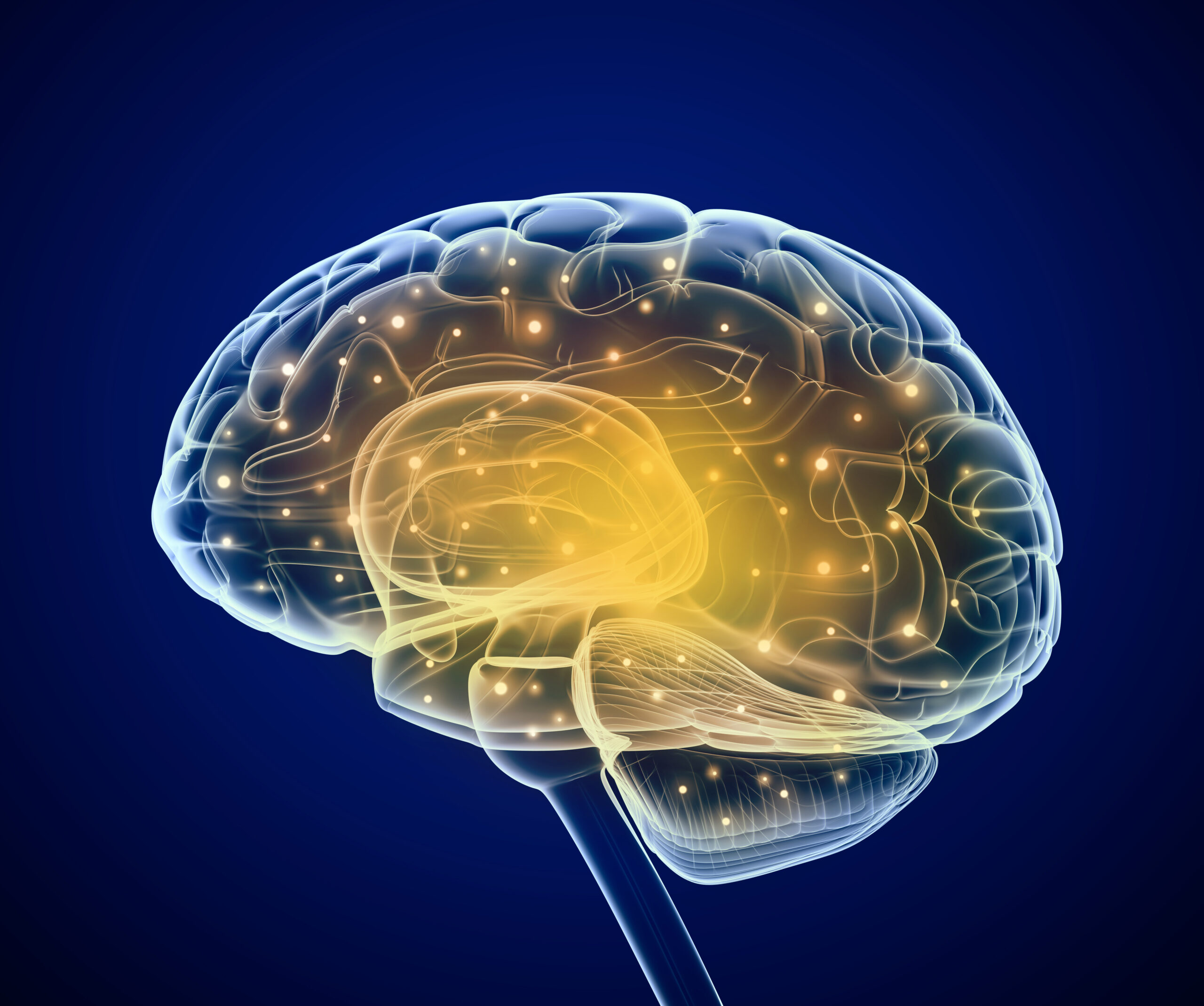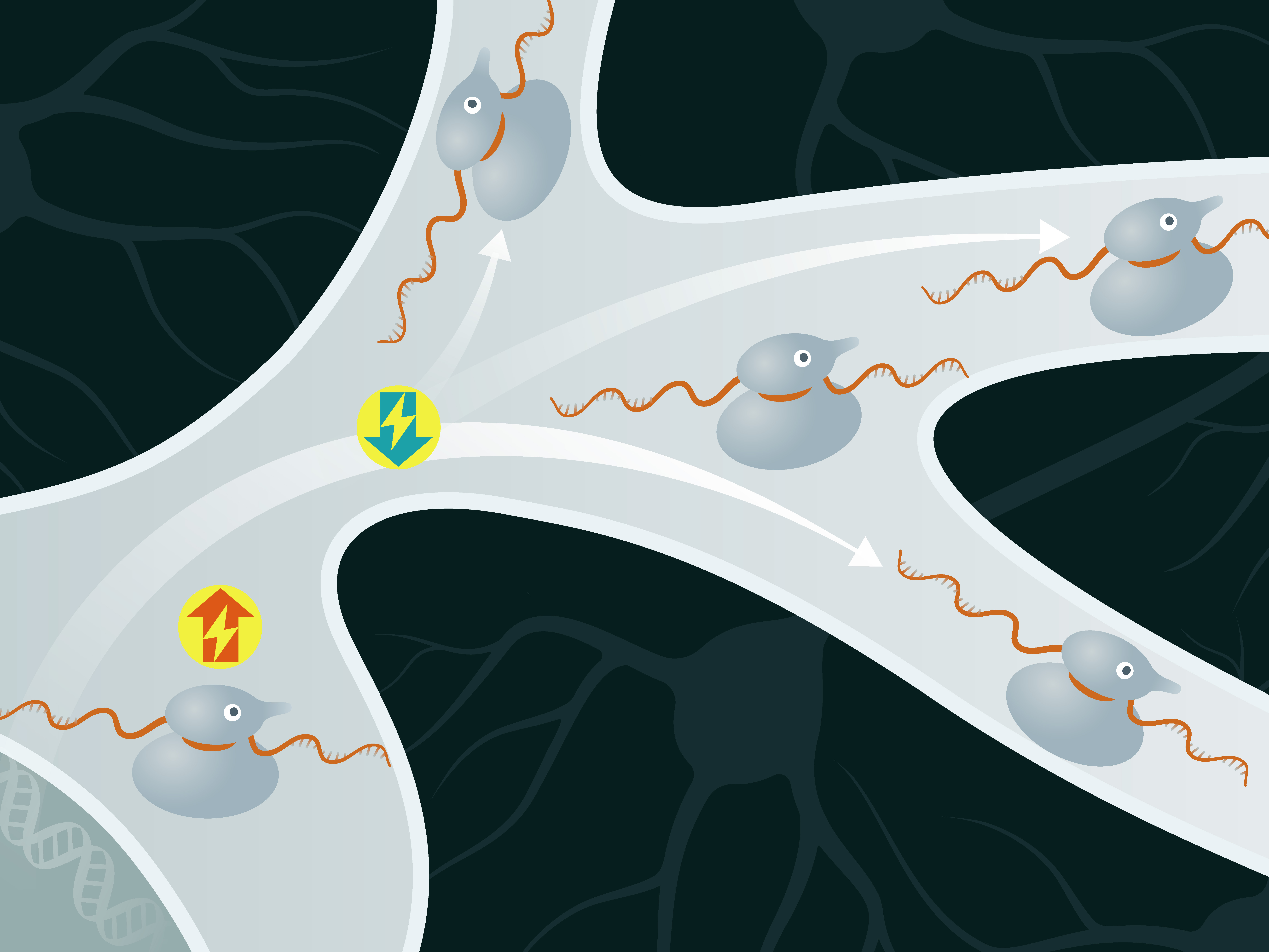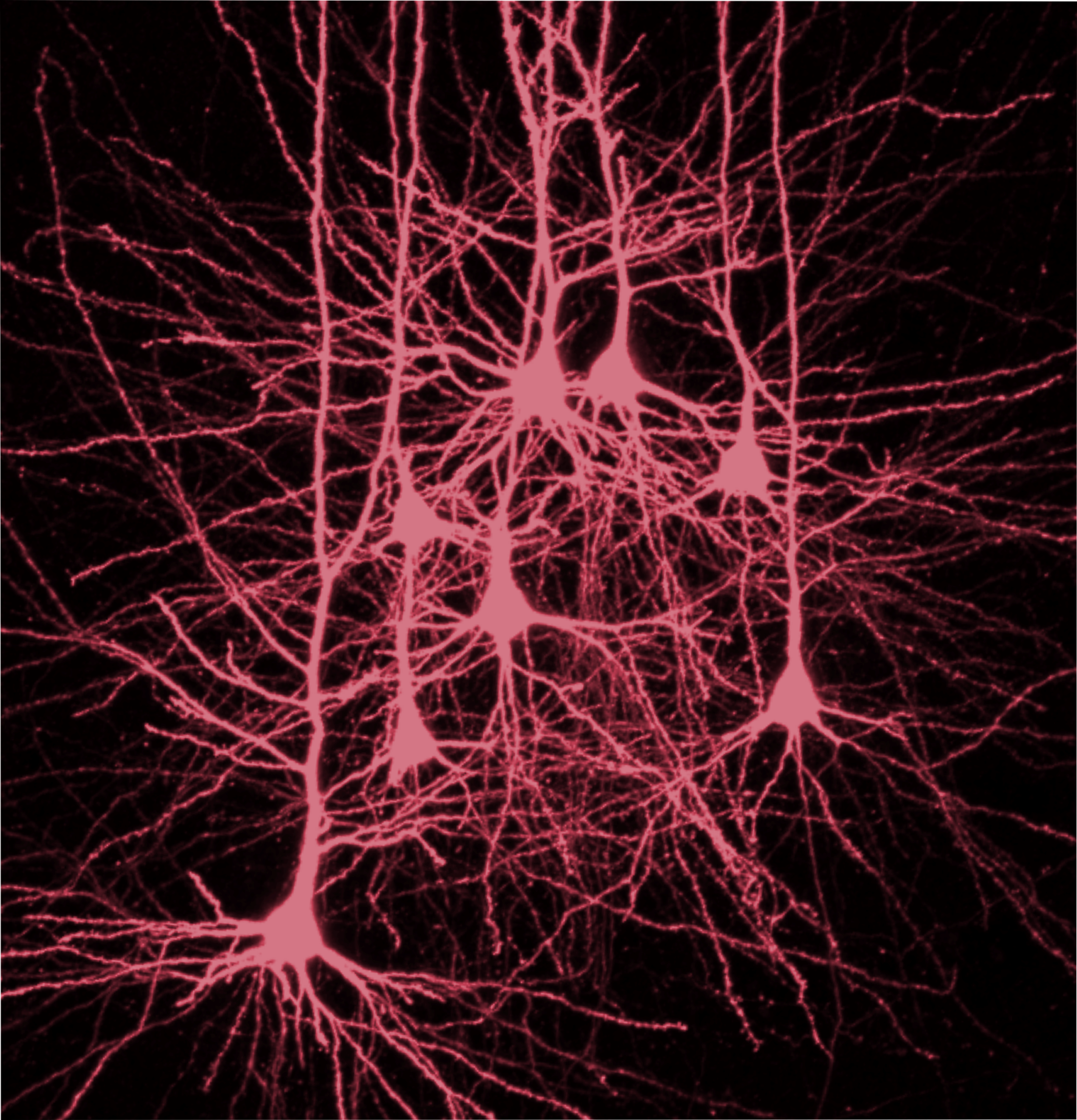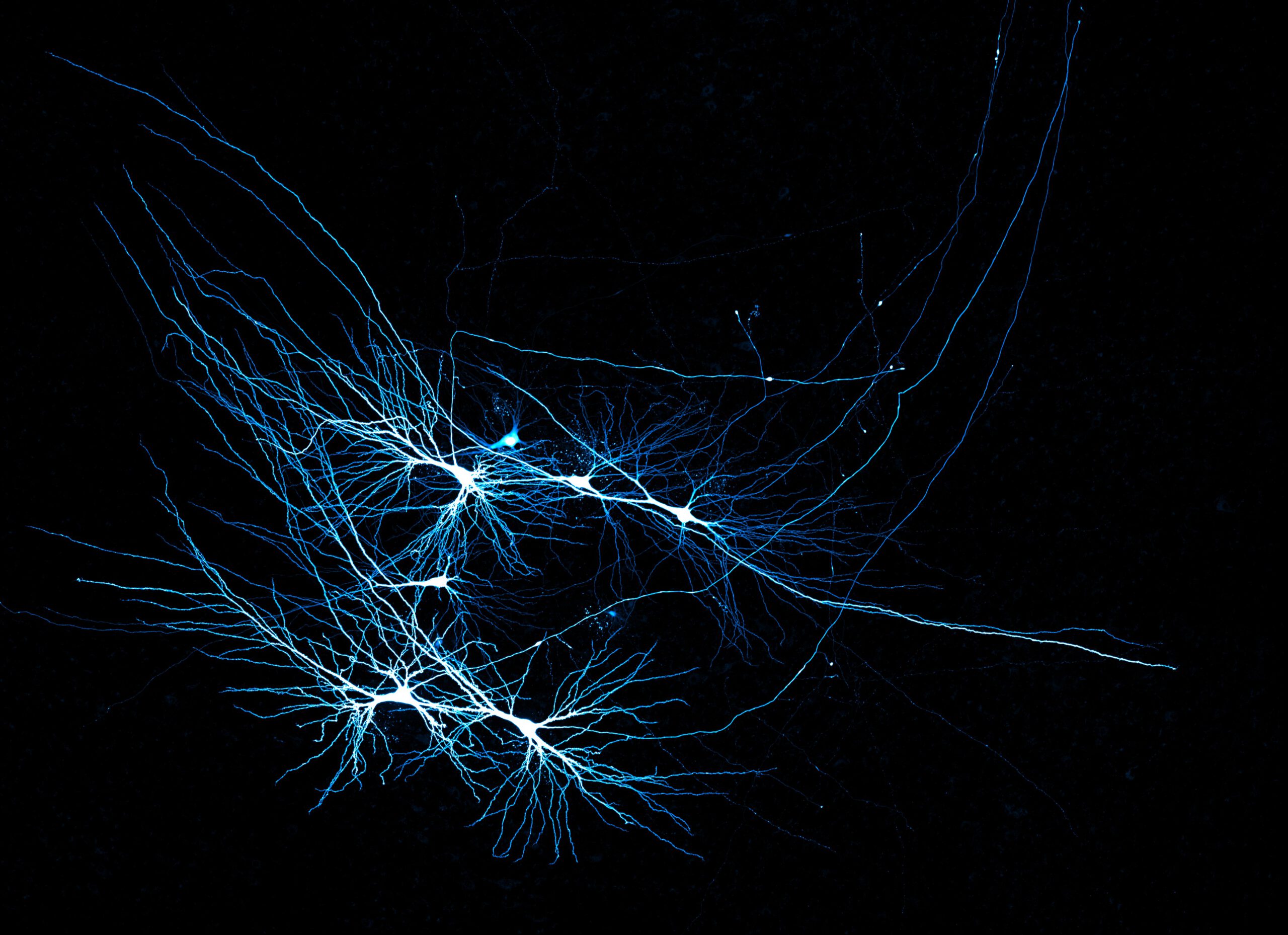Kategorie: Neuroscience
-

How the brain manages the perfect balancing act Study by Dresden University Medicine provides new insights
The brain impresses with its unique ability to process information efficiently and adapt flexibly to changing challenges. Until now, science has based this on two separate principles: criticality, i.e. the balancing act between order and chaos, and efficient coding, in which the brain reduces superfluous signals and utilises its resources with maximum precision. However, a…
-

Saving energy is „in“, even neurons are joining in
Nerve cells have amazing strategies to save energy and still perform the most important of their tasks. Researchers from the University Hospital Bonn (UKB) and the University of Bonn as well as the University Medical Center Göttingen found that the neuronal energy conservation program determines the location and number of messenger RNA (mRNA) and proteins,…
-

How the brain makes flexible decisions
Neuroscientists show how the brain enables flexible decision-making Göttingen/Germany, February 3, 2025 Our brain is remarkably flexible in producing different reactions to supposedly comparable situations. The same sensory information can lead to different decisions depending on the behavioural context. One example of this is a penalty kick in football: a player can either choose the…
-

Why deep sleep promotes our memory Slow brain waves make the cerebral cortex particularly receptive
It has been known for almost 20 years that slow, synchronised excitation waves during deep sleep support memory formation. It was previously unknown why this is the case. A research team from Charité – Universitätsmedizin Berlin has now provided an explanation in the journal Nature Communications*. The slow waves make the cerebral cortex, the seat…
-

How is our memory wired Pattern completion process
The black box of the human brain is beginning to open. Although animal models are crucial to our understanding of the mammalian brain, the less frequently collected human data is revealing important features. In a paper published in Cell, a team led by the Jonas Group at the Institute of Science and Technology Austria (ISTA)…


